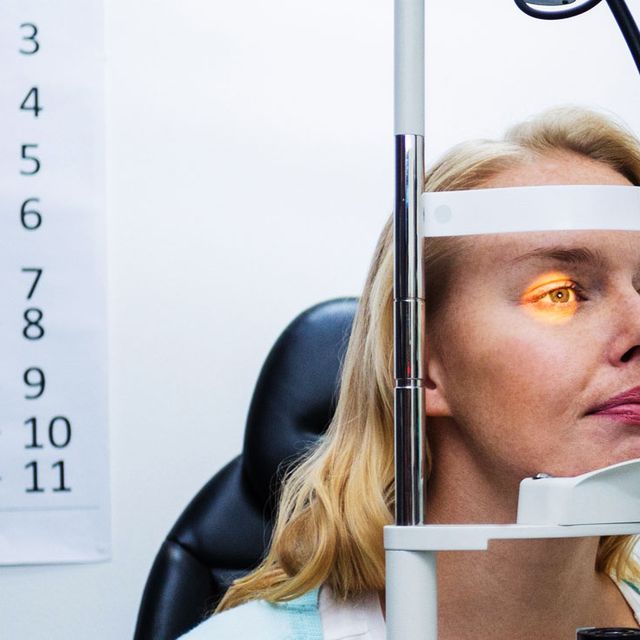
Blog

If you're considering making the switch from eyeglasses to contact lenses, you're likely wondering which type of contact lens is the best fit for your unique vision needs and lifestyle. With so many options available, it can be overwhelming to navigate the world of contact lenses.
In this comprehensive guide, we'll explore the different types of contact lenses, the key factors to consider when choosing the right ones, and the role of a professional contact lens exam and fitting. By the end, you'll have a better understanding of how to find the perfect contact lens solution for you.
Vision Correction with Contact Lenses
Contact lenses offer a versatile and convenient alternative to traditional eyeglasses. Unlike glasses, which sit on your face, contact lenses are worn directly on your eyes, providing a more natural and unobstructed field of vision. Contact lenses can correct a variety of refractive errors, including:
Nearsightedness (myopia)
Farsightedness (hyperopia)
Astigmatism
Presbyopia
Wearing contact lenses can offer several benefits, such as improved peripheral vision, enhanced visual clarity, and the freedom to participate in various activities without the hassle of glasses. However, it's important to understand the different types of contact lenses available and how to choose the right ones for your needs.
Different Types of Contact Lenses
When it comes to contact lenses, there are several distinct types to consider, each with its own unique features and benefits. Soft contact lenses are the most popular and widely-used type of contact lens. They are made of flexible, comfortable materials that conform to the shape of your eye, providing a natural and lightweight feel.
Also known as "hard" contact lenses, RGP lenses are made of a more rigid, durable material that allows oxygen to pass through to the cornea. While they may take some time to adjust to, RGP lenses can provide exceptional visual clarity and are often a good choice for individuals with astigmatism or irregular corneal shapes.
In addition to the standard soft and RGP lenses, there are also specialty contact lens options available for individuals with unique vision needs or eye conditions, such as:
Scleral lenses: These large-diameter lenses vault over the entire cornea, making them an excellent choice for individuals with irregular corneal shapes or severe dry eye.
Multifocal lenses: Designed to address presbyopia, multifocal lenses have different prescriptions in different areas of the lens to allow for clear vision at various distances.
Toric lenses: Toric lenses are specifically made to correct astigmatism, providing sharper, more precise vision.
Factors to Consider When Choosing Contact Lenses
When selecting the right contact lenses for your needs, there are several important factors to consider. The primary purpose of contact lenses is to provide clear, comfortable vision. Evaluate your specific refractive errors, such as nearsightedness, farsightedness, or astigmatism, and choose lenses that are designed to address those needs.
Consider your daily activities and how you'll be using your contact lenses. For example, if you're an avid athlete or enjoy water sports, you may want to opt for daily disposable lenses or extended-wear options that can withstand more rigorous use.
Some individuals may have more sensitive eyes or experience discomfort with certain lens materials. Pay attention to how your eyes feel when wearing different types of contact lenses and choose the ones that provide the most comfortable fit.
Depending on your preference, you may want to consider the level of maintenance required for your contact lenses. Daily disposable lenses offer the ultimate convenience, while reusable lenses may require more frequent cleaning and disinfection.
Certain eye conditions, such as dry eye or keratoconus, may require specialized contact lens designs or materials. Be sure to discuss any existing eye health concerns with your eye care professional to ensure you select the safest and most effective contact lens solution.
The Role of a Contact Lens Exam and Fitting
Choosing the right contact lenses is not a one-size-fits-all process. It's essential to undergo a comprehensive contact lens exam and fitting with an optometrist. During the exam, your eye doctor will:
Assess your vision and refractive errors
Measure the curvature and size of your eyes
Evaluate the overall health of your eyes
Recommend the most suitable contact lens options based on your unique needs
The fitting process involves trying on different types of contact lenses to determine the best fit and comfort level. Your eye doctor will guide you through the selection and provide instructions on proper lens insertion, removal, and care.
Regular follow-up appointments are also crucial to ensure your contact lenses continue to provide optimal vision and eye health. Your eye doctor will monitor any changes in your eyes and make adjustments to your contact lens prescription or fit as needed.
Finding the Right Contact Lens for You with Super Optical Express
Navigating the world of contact lenses can be a bit overwhelming, but with the right information and guidance, you can find the perfect solution for your vision needs. With the right contact lenses, you can enjoy the freedom and convenience of clear, comfortable vision without the hassle of eyeglasses.
At Super Optical Express, we are dedicated to helping you find the perfect contact lens solution. Contact our office in Gainesville, Florida, by calling (352) 702-9700 to schedule a comprehensive contact lens exam and fitting today to take the first step towards clearer, more comfortable vision.



